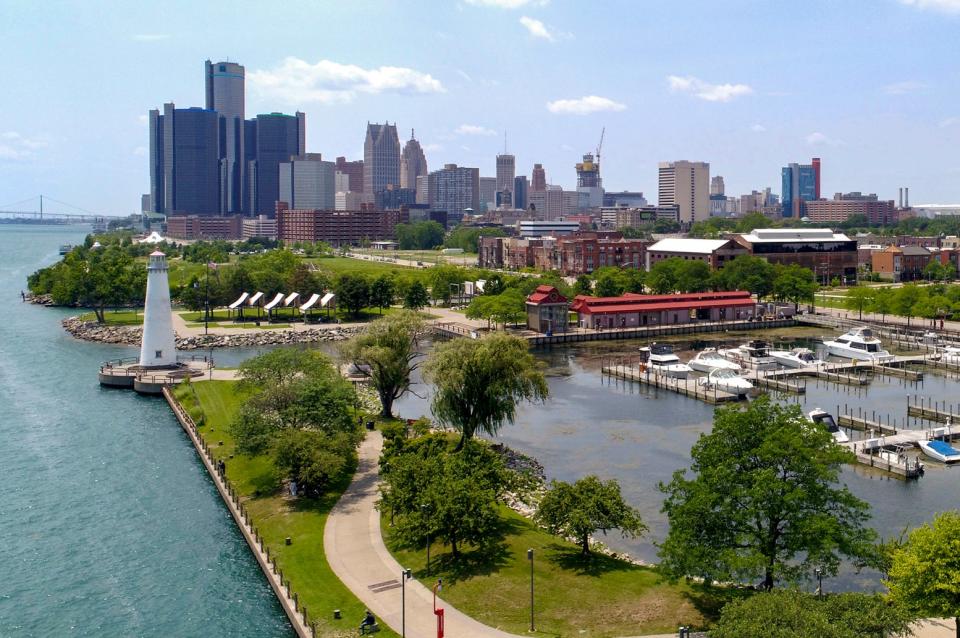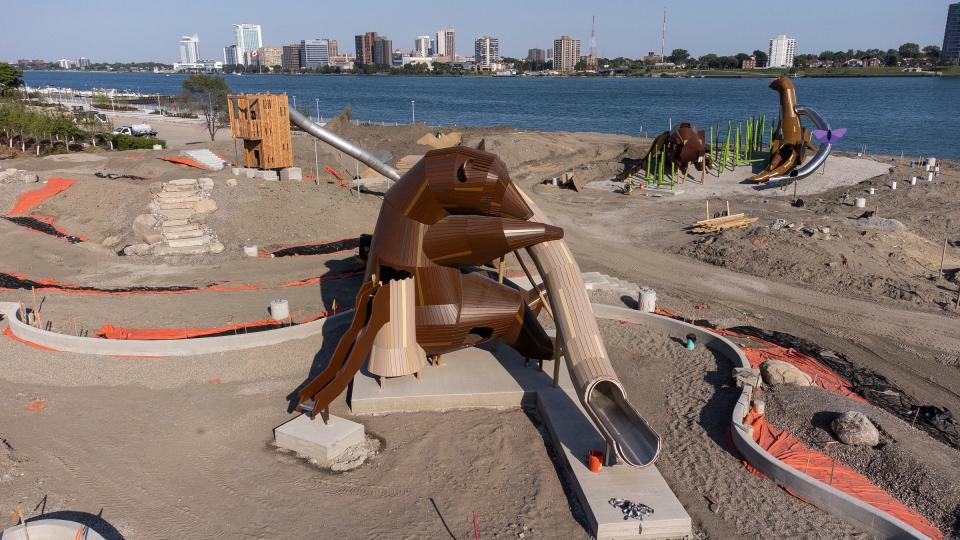How could this happen? Riverfront Conservancy owes Detroit an answer.
Say it ain’t so, Riverfront Conservancy.
Like the rest of metro Detroit, we've watched with dismay as news of financial malfeasance at the Detroit Riverfront Conservancy trickled out over the last month: A Michigan State Police investigation into missing money, quickly handed off to the FBI. The suspension and firing of William Smith, the conservancy's CFO, who was charged in federal court Wednesday with bank and wire fraud. The FBI alleges Smith embezzled $40 million over an 11-year period, falsifying bank statements and making unauthorized wire transfers while using the money for everything from limousines to lawn care.
The riverfront — the conservancy — must survive this.
But regaining the faith of the community that believed in the riverfront — rebuilding trust with the funders who paid for much of this transformation — must be job one.
What's at stake
Once concrete and industrial, the riverfront is this city’s most dramatic transformation. A haven of hope even in the darkest of times, a place where anyone can find a moment of peace, somewhere that showed what we have the potential to achieve.
Even before all the renovations and buildouts and all the playscapes and landscaping, when there were dim and dirty spots to access the river, fishermen and sightseers delighted in secret destinations for quiet views of the international waters.
And then they got to watch this special place become beautiful, filled with grand amenities and families enjoying Detroit’s gorgeous and inclusive riverwalk, one place in this town where all felt truly welcome.
A 5.5-mile stretch encompassing a jewel-like string of parks dotted along a riverwalk connector, the Aretha Franklin Amphitheatre, the Dequindre Cut, the planned Joe Louis Greenway and the still under-construction Ralph C. Wilson Jr. Centennial Park, the riverfront dazzles.
But now, like so many other Detroit initiatives that showed promise, it’s tainted by corruption. Another asterisk in Detroit's long list of squishy triumphs.

More from Freep opinion: How Coleman Young transformed Detroit's Riverfront, starting with Chene Park
The investigation
Earlier this year, conservancy board members became concerned about an apparent cash shortage at the nonprofit, which reported $175 million in assets and about $25 million in annual revenue for 2022. The board brought in PricewaterhouseCoopers to conduct an independent audit, and former U.S. Attorney Matthew Schneider from the law firm Honigman to offer legal advice. When the audit revealed the suspected embezzlement, the conservancy referred the matter to the Michigan State Police. Because of the financial complexity of the investigation, the state police brought in the FBI.
CEO Mark Wallace, who is not implicated in the missing funds, has left the conservancy. Longtime board chair Matt Cullen announced last week that Detroit resident and former Rock Ventures executive Ryan Sullivan will serve as interim CEO.
The riverfront’s newfound grandeur is now tainted. Someone entrusted with overseeing the riverfront’s finances walked away with millions in grant money and donations that flowed happily into the riverwalk — for years — without anyone raising the alarm, despite a management structure and board stocked with some of our region's most trusted and respected professionals. There’s no way around that reality.
Or that the riverfront has work to do.
More from Freep opinion: As Detroit's population finally grows, don't forget those who held the line

What's next
Why must the conservancy survive? Because our riverfront deserves to be held in trust for Detroiters, not subject to the financial ups and downs of our still-struggling city. As Detroit's revenue dwindled over the last half-century, neighborhood parks large and small closed, were threatened with closure, or simply languished in neglect. The Belle Isle Aquarium and other beloved institutions came close to destruction. A financially distressed city can't prioritize amenities like an aquarium — or a riverfront.
So far, the conservancy has ordered a pair of investigations — separate from the FBI probe — by legal and auditing firms, invited a group of board members and outside business leaders to analyze its operations and offer recommendations for modernized model for preventing "problems from within," and is exploring a civil lawsuit against Smith.
Two major funders — the Ralph C. Wilson Jr. Foundation and The Kresge Foundation — have pledged new funding to complete major projects. This is crucial.
But that’s not likely to be a blank check. The groups that have poured millions into the riverfront deserve some assurance that guardrails are in place.
So do Detroiters.
Here’s what has to happen.
Absolute transparency. The FBI released details of Smith's alleged misdeeds in its charging documents. The riverfront must follow suit when its internal investigations are complete, and must give the public access to complete financial records going forward.
An explanation. The question we're hearing over and over is, "How could this happen?" Only Smith has been implicated in suspected embezzlement, but it's hard not to think someone — like the conservancy's auditors, or the 44 well-regarded members of its board — should have noticed as more than $40 million walked out the door. So — an explanation, even if it exposes flaws in the organization or its structure, even if it is hard to give.
An apology. It may be difficult to offer a complete apology until the conservancy can explain how it happened. But the public deserves an immediate acknowledgement that someone, or everyone, took their eyes off the details of the operation — and we haven't quite heard that.
A plan. The conservancy has made a good start on this, putting new leadership in place, and stating its next steps in a statement released last Friday. The conservancy must be as forthcoming about whatever restructuring or financial oversight mechanisms the organization will adopt to ensure confidence that donations, going forward, will be used for their intended purpose. Board members must ask questions, even when it's hard. And all of those new structures must be visible to the public.
Shimmer on the River, the conservancy's major fundraiser, is set to take place Monday. The conservancy’s core mission remains unchanged, and we assume the event will proceed, but it should be handled with care — and could be the right venue for the work of rebuilding trust to begin.
Detroiters believe in forgiveness, and in second chances.
What the conservancy and this community built is real. The joys of our riverfront can’t be taken away. So we'll keep bringing our families, our bicycles and fishing poles — and our financial contributions — but the conservancy must bring the integrity.
Submit a letter to the editor at freep.com/letters and we may publish it online or in print. This editorial was originally published on freep.com last week. It has been updated to reflect developments in the criminal case against Smith.
This article originally appeared on Detroit Free Press: Detroit Riverfront Conservancy must rebuild trust amid embezzlement probe

